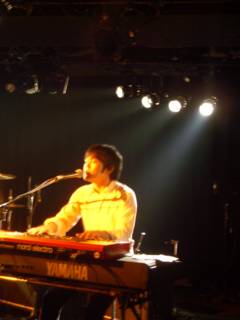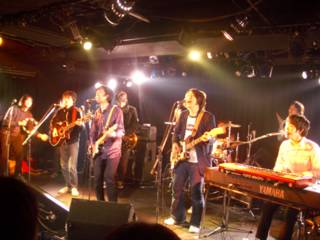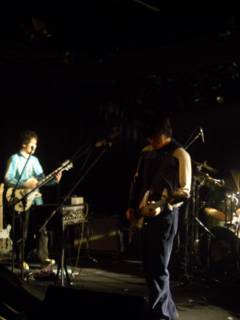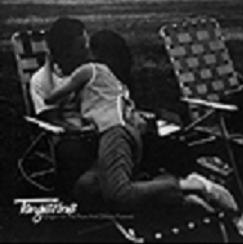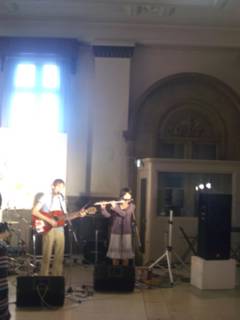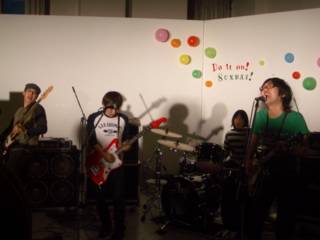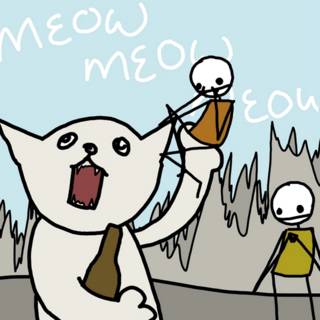
So you want to be a rock 'n' roll star?

Since I started this blog half a year ago, the most frequently asked question from e-mailers, in fact the ONLY frequently asked question, is from musicians outside of Japan wondering how to go about arranging a show in Tokyo or the other big cities.
Now I’m not a band member myself so I’m not the right person to answer this question, but I do feel sympathy for these e-mailers. I too, if were a musician, would be interested in playing in Tokyo, which is more and more becoming one of the world’s Pop Culture Capitals.
Unfortunately, the short answer to ‘How can my band book a show in Japan?’ is, ‘not easily’.
I sought the opinion of Edgar Franz, who leads a band called
Miniskirt in Tokyo and has done numerous shows, including at Shimokitazawa’s Club Que, a highly regarded venue.
"I guess that it's nearly impossible to handle show bookings from outside Japan," he said.
It also doesn't make much sense. You need Japanese support acts and someone on location to do the promotion anyway. The managers of the live venues usually want to talk personally to the organizers. Demo tapes and resumes of the bands have to be transmitted. As there are hundreds of bands playing every night, it's very hard to attract visitors. Just 80 visitors is already a success for an event with 4 indie-bands playing.
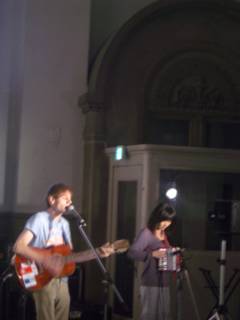
Edgar Franz of Miniskirt.

What Edgar is talking about in regard to the club managers is that, like Japanese businessmen in general, the managers are somewhere between being perfectionists and obsessive-compulsives. Just as Japanese salary men are notorious for holding endless meetings that don’t do much to boost productivity, club managers here have a reputation for wanting to know everything about a show before it happens (resumes, personal interviews, required rehearsals the day of the show), which might not necessarily be that helpful in sparking a spontaneous rock ‘n’ roll explosion.
So, the perfectionist club owner won’t be too inclined to book a band from thousands of miles away based only on a demo tape and a few e-mails (especially if those e-mails aren’t in Japanese!). Edgar adds that even a fairly well-known foreign band wouldn’t be able to book a show in Japan without a local coordinator.
Nothing is for certain, though, and if a band were to come to Japan for a couple of weeks and made the rounds of clubs, bars and cafes in one of the big music centers like Shimokitazawa, they might very well get a lucky break. But the band members should keep a sense of perspective, and enjoy the visit (and they should watch as many shows as they have time for and can afford, because Japanese bands are world-class).
One last thing, and I realize this isn’t feasible for most band guys, but if you really want to perform in Japan, nothing would beat actually living here, at least temporarily. Teach English, work in a bar, or do whatever work you can find, and in your free time try to break into the scene. If you start getting action, and you have time to blog about the in-depth experience in the Japan music scene, I will certainly read YOUR Japan Live!


